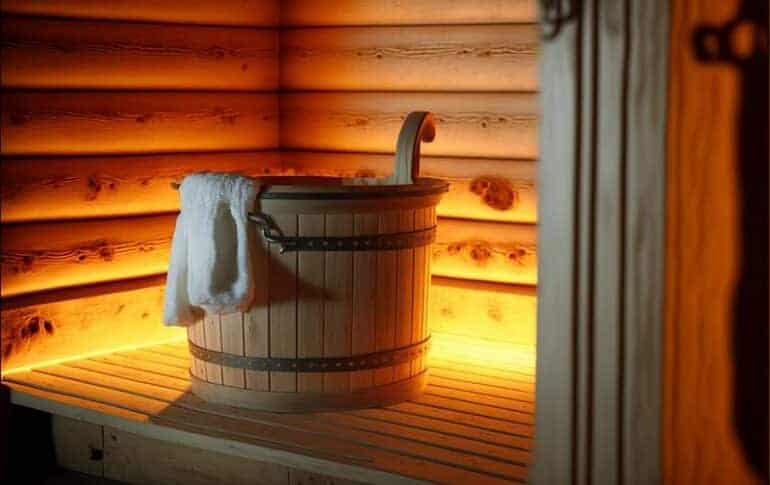Saunen or saunas – What is the correct plural?
In the German language, the word “sauna” is used in the singular, regardless of whether it refers to a single sauna or several saunas. The question of the correct plural therefore only arises when there is talk of several saunas in the context.
In practice, both “saunen” and “saunas” have become accepted as plural forms. Both variants are used and accepted. The choice of plural form often depends on personal preferences or regional differences. Some people prefer the form “saunas” because it follows German grammar and uses the plural ending “-en”, which occurs in many other words. Others prefer the form “Saunas” because it is based on the English word “saunas” and has an international character.
The Duden, by the way, allows both variants. This shows that there is no clearly correct or incorrect plural. It ultimately depends on the context, personal usage and individual preferences.
Regardless of the plural form, the meaning of sauna as a place to relax and sweat remains the same. Taking a sauna has many health benefits, as it cleanses the body, promotes circulation, and increases overall well-being. Whether it is one or more saunas, the pleasure and positive effects remain the same.
Saunen or saunas, that is the question here?
The popularity of the sauna as a wellness and relaxation facility has led to it being known by the same name in many parts of the world. Whether in Finland, the so-called “country of origin” of the sauna, or in other countries such as Germany, England or the USA, the term “sauna” is in common use and is derived from its Finnish origin. The sauna has become an internationally recognized leisure activity, enjoyed and appreciated by people all over the world.
Regardless of the plural form chosen, the meaning of sauna remains as a place of relaxation and well-being. The heat and sweating in the sauna have a variety of positive effects on the body. The heat opens the pores of the skin, eliminating impurities. This can lead to a clearer complexion. In addition, saunas release endorphins, which can lead to relaxation and feelings of happiness.
The sauna is also a great way to relieve stress. The alternation between heat and cooling can stimulate the body and calm the mind. Many people also appreciate saunas as a place to socialize, meet with friends or family and relax together.
Whether one is talking about saunas or sauna-ing should not affect the actual experience. Ultimately, the point is to experience the beneficial and health-giving effects of the sauna and relax in its comforting warmth.
The sauna: popular names for a wellness facility appreciated all over the world
The sauna is a popular facility for relaxation and body care, known in many countries around the world. Although the term “sauna” is used in most countries, there are some interesting differences in the names used in different languages and cultures for this type of wellness facility.
- In Finland, the so-called “country of origin” of the sauna, the term “sauna” is used. Finns have a long tradition of using saunas and consider them an integral part of their cultural heritage. In Germany, it is also called “sauna“, which indicates the popularity and spread of these facilities in this country.
- In Sweden, the sauna is called a “bastu.” Similar to Finland, there is a strong sauna tradition in Sweden, and the sauna is seen as a place for relaxation and social interaction. Norway uses the term “Badstu,” which also refers to Scandinavian sauna culture.
- Denmark, the Netherlands, France, Spain, Italy, the United Kingdom, the United States, Canada, Australia, New Zealand, India, and Brazil all use the term “sauna.” This shows how widespread and internationally recognized the name is for this facility.
- In Russia, the sauna is referred to as a “banya.” The Russian banya has some special features compared to the Finnish sauna, such as tapping with
- birch twigs to promote blood circulation.
In Japan, the term “sauna” is used directly, but in the spelling “サウナ“. Although Japanese culture has its own traditional bathing facilities, sauna has also gained importance in Japan due to its popularity. - In South Korea, the term “Jjimjilbang” is used for sauna facilities. A jjimjilbang is essentially a public bathhouse that includes various facilities such as saunas, bathing pools and rest areas. In Korean culture, it is a popular place for social interaction and relaxation.
- In China, the term “sauna” is translated as “桑拿” (sangna). Sauna has also gained popularity in China and is used by people to relax and promote health.
Please note that this is only a selection of the names commonly used for saunas in different countries, and that there may also be regional or local names in certain regions. However, the variety of names shows that the idea and benefits of sauna are appreciated in many parts of the world. Whether it is called sauna, bastu, banya, or jjimjilbang, these facilities offer people the opportunity to relax, relieve stress, and improve their health.
Referenzen

